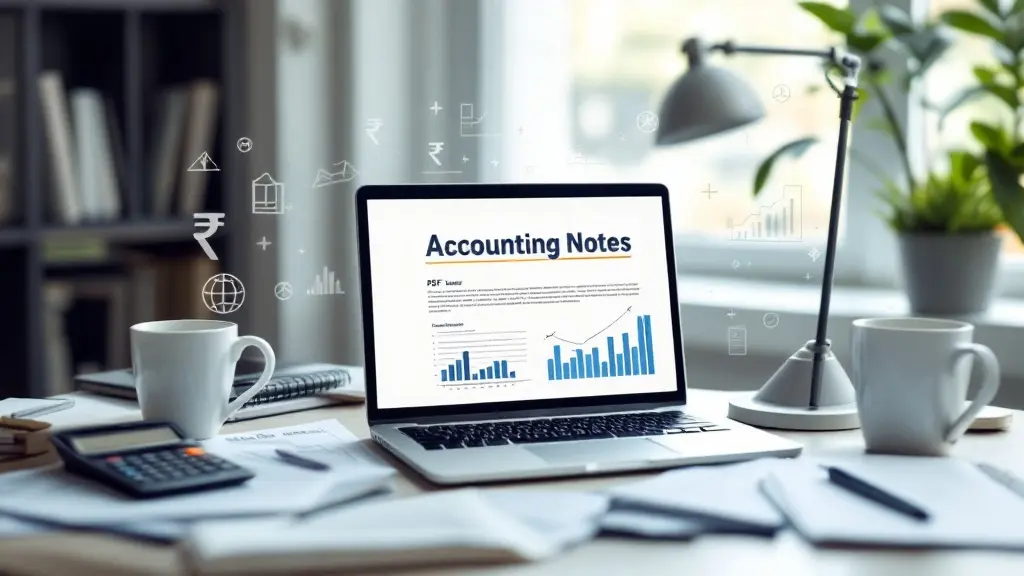How Accounting Provides Data and Information: A Comprehensive Guide
Table of Contents
Most Read
[fusion_dropcap class="fusion-content-tb-dropcap"]A[/fusion_dropcap]ccounting is often considered the backbone of any business or organization. It plays a crucial role in providing data and information that are essential for decision-making, financial planning, and overall business health. But how exactly does accounting provide this data, and why is it so important? In this article, we will explore how accounting serves as a reliable source of data and information, how it impacts business decisions, and why understanding accounting is crucial for both professionals and business owners.
Table of Contents
- Introduction: The Role of Accounting in Business
- What is Accounting?
- Types of Accounting Information
- How Accounting Provides Accurate Data
- Accounting and Decision-Making
- The Impact of Accounting on Business Performance
- The Importance of Accurate Accounting Data
- How Technology is Shaping Accounting Information
- Conclusion: The Power of Accounting Information
1. Introduction: The Role of Accounting in Business
In today’s dynamic business world, every decision made by a company, whether it’s a small startup or a large corporation, relies heavily on accounting data. From managing cash flow to evaluating profitability, the insights provided by accounting professionals are invaluable. But accounting is not just about numbers—it’s about telling the story behind those numbers. It helps businesses assess their financial health, identify potential areas of growth, and avoid costly mistakes.
In this article, we will delve deeper into how accounting provides accurate data and information that drives smart business decisions.
2. What is Accounting?
At its core, accounting is the process of recording, classifying, and summarizing financial transactions to provide businesses with insights into their financial position. It involves the use of financial statements such as balance sheets, income statements, and cash flow statements to analyze and report a company’s financial performance.
Accounting can be broken down into different branches, including financial accounting, management accounting, and cost accounting. Each branch serves a specific purpose, but all contribute to creating accurate, comprehensive financial reports that provide essential data for decision-making.
3. Types of Accounting Information
Accounting provides various types of data, each serving a distinct purpose for businesses. These include:
a. Financial Data
Financial data is perhaps the most well-known form of accounting information. It consists of the details found in financial statements such as:
- Balance Sheets: Show the company’s assets, liabilities, and equity.
- Income Statements: Highlight the company’s revenues, expenses, and profits over a period.
- Cash Flow Statements: Provide an overview of cash inflows and outflows.
b. Managerial Data
Managerial accounting focuses on providing internal data for management decision-making. This includes budgeting, forecasting, and performance analysis. Managers use this information to track business operations, set financial goals, and make strategic decisions.
c. Cost Data
Cost accounting helps businesses understand the costs associated with producing goods or services. This data is used to evaluate product profitability, set pricing strategies, and optimize production processes.
d. Tax Information
Accounting also provides data needed for tax filing and compliance. It helps businesses keep track of income, expenses, and deductions to ensure they meet tax obligations and avoid penalties.
4. How Accounting Provides Accurate Data
Accounting is designed to ensure accuracy through several key processes:
a. Double-Entry System
The double-entry bookkeeping system is the foundation of accounting. Every transaction is recorded in two places—once as a debit and once as a credit—ensuring that the financial statements are always in balance. This system reduces the risk of errors and provides a clear and accurate representation of a company’s financial position.
b. Accrual vs. Cash Accounting
Businesses can use either accrual accounting or cash accounting. Accrual accounting records revenue and expenses when they occur, providing a more accurate representation of financial performance. Cash accounting, on the other hand, records transactions when cash changes hands, offering a more simplified approach. Both methods offer valuable data but serve different needs.
c. Internal Controls and Audits
To ensure the data’s reliability, companies implement internal controls and conduct regular audits. Internal controls are procedures and systems designed to prevent errors or fraud, while audits independently verify the accuracy of financial records. This adds an extra layer of confidence in the data provided by accounting.
5. Accounting and Decision-Making
The data provided by accounting is essential for making informed decisions. Whether it’s a small business deciding on an investment or a multinational corporation strategizing for growth, accounting data informs critical choices. Here are a few examples:
a. Budgeting and Forecasting
Accounting data helps businesses create accurate budgets and forecasts. By analyzing past financial performance, businesses can predict future revenues and expenses, set realistic goals, and allocate resources efficiently.
b. Investment Decisions
Investors and business owners rely heavily on accounting information to evaluate whether a business is a good investment. Key data points like profitability, return on investment (ROI), and cash flow provide investors with a clear picture of a company’s financial viability.
c. Cost Control
Understanding where money is being spent is crucial for controlling costs. Accounting provides detailed cost data, enabling businesses to identify areas where they can reduce expenses and improve profitability.
6. The Impact of Accounting on Business Performance
Good accounting practices can have a profound impact on a business’s overall performance. Accurate accounting data ensures that businesses make decisions based on solid financial information, leading to better financial outcomes. On the other hand, poor accounting practices can lead to costly mistakes, such as overestimating profits or underestimating liabilities.
Some of the key ways accounting impacts business performance include:
- Improved cash flow management: Businesses can avoid liquidity issues by tracking cash inflows and outflows accurately.
- Profitability analysis: Accounting data helps businesses understand where they are making money and where they are losing it, guiding them towards more profitable ventures.
- Risk management: Financial data helps businesses anticipate potential risks and take proactive steps to mitigate them.
7. The Importance of Accurate Accounting Data
Accurate accounting data is the lifeblood of any business. Inaccurate or incomplete data can lead to poor decisions, financial mismanagement, and even legal issues. Here’s why accurate accounting data is critical:
- Financial Planning: Good data enables businesses to create effective financial plans and strategies.
- Compliance: Accurate accounting ensures that businesses comply with tax laws and financial regulations.
- Investor Confidence: Reliable financial data fosters trust among investors, lenders, and other stakeholders.
- Operational Efficiency: When business owners and managers have access to clear, accurate data, they can make better operational decisions.
8. How Technology is Shaping Accounting Information
The world of accounting has evolved with the advent of technology. Today, businesses use accounting software and digital tools to streamline data collection, processing, and reporting. These advancements have made accounting more efficient, accurate, and accessible.
Some of the ways technology is transforming accounting include:
- Cloud Accounting: Cloud-based accounting software allows businesses to access financial data from anywhere, at any time.
- Automation: Many routine accounting tasks, such as invoicing and payroll, are now automated, reducing the risk of human error.
- Data Analytics: Advanced analytics tools enable businesses to gain deeper insights into their financial data, improving decision-making.
9. Conclusion: The Power of Accounting Information
Accounting is much more than just a record-keeping tool—it’s a critical function that provides essential data and information for effective decision-making. Whether it’s for budgeting, investment decisions, or improving profitability, accounting offers invaluable insights that guide businesses toward success.
In today’s competitive landscape, accurate and timely accounting data is more important than ever. As technology continues to reshape the field, businesses that embrace modern accounting practices will be better equipped to navigate challenges and capitalize on opportunities.
By understanding how accounting provides valuable data, businesses can make smarter decisions, optimize performance, and secure long-term success. As we move forward, the importance of reliable financial information will only grow, making accounting an indispensable part of any successful business strategy.









